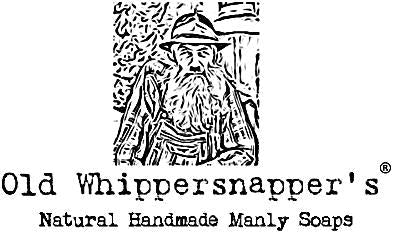
The Surprising Benefits of Carbolic Soap
Share
In the age of modern, highly-scented and chemically-laden soaps, there's a forgotten gem that's making a comeback - carbolic soap. At Old Whippersnapper's® Natural Handmade Manly Soaps, we take pride in offering this classic, no-frills cleanser that has stood the test of time.
Carbolic soap, also known as phenol soap, has been around for centuries and was once a staple in every household. Derived from coal tar, this unassuming bar packs a powerful punch when it comes to its cleansing and antiseptic properties. Unlike many of today's soaps that are loaded with synthetic fragrances and harsh detergents, carbolic soap is made from natural ingredients and is renowned for its ability to effectively kill germs and bacteria.
One of the key benefits of carbolic soap is its ability to treat skin conditions such as acne, eczema, and psoriasis. The active ingredient, phenol, has strong antimicrobial properties that can help to reduce inflammation and clear up blemishes. Many people with sensitive skin have found that switching to carbolic soap has helped to soothe and calm their complexion, without the irritation often caused by harsher, chemical-based products.
In addition to its skin-healing properties, carbolic soap is also an excellent choice for those looking to maintain good hygiene. Its powerful cleansing action makes it particularly effective at removing dirt, grease, and odor-causing bacteria from the skin. This makes it an ideal choice for those who work in manual or industrial jobs, or for anyone who simply wants to feel refreshed and clean after a long day.
But the benefits of carbolic soap don't stop there. This versatile bar can also be used as a household cleaner, helping to disinfect and deodorize surfaces throughout the home. Its antiseptic properties make it a great choice for cleaning cutting boards, sinks, and other areas where germs can accumulate.
At Old Whippersnapper's®, we're proud to offer a range of high-quality carbolic soaps that are handmade using only the finest natural ingredients. From our classic Pine Tar soap to our exfoliating Gritty Coffee Soap, we have something to suit every skin type and preference.
So, if you're looking to rediscover the power of this time-honored cleanser, be sure to check out our selection of carbolic soaps at Old Whippersnapper's®. Your skin (and your home) will thank you!
The History of Carbolic Soap
Carbolic soap has a long and fascinating history, dating back to the 19th century. It was first developed by English chemist Henry Deacon in 1834, who discovered that the addition of coal tar to soap could enhance its antiseptic properties. This discovery was particularly important during a time when infectious diseases were rampant, and effective disinfectants were in high demand.
The popularity of carbolic soap grew rapidly, and it soon became a staple in hospitals, schools, and households across the world. It was even used by the military during the American Civil War and World War I to help prevent the spread of disease among soldiers.
Despite its widespread use, carbolic soap fell out of favor in the mid-20th century as synthetic detergents and fragranced soaps became more prevalent. However, in recent years, there has been a resurgence of interest in this classic cleanser, as more people seek out natural, effective alternatives to the harsh, chemical-laden products that dominate the market today.
The Science Behind Carbolic Soap
The key to the effectiveness of carbolic soap lies in its active ingredient, phenol. This compound, also known as carbolic acid, is a powerful antiseptic and disinfectant that can effectively kill a wide range of bacteria, viruses, and fungi.
When used as a soap, the phenol in carbolic soap helps to break down the cell walls of microorganisms, rendering them unable to survive on the skin's surface. This makes it an excellent choice for those looking to maintain good hygiene and prevent the spread of illness-causing germs.
In addition to its antimicrobial properties, phenol also has astringent and drying effects on the skin. This can be particularly beneficial for those with oily or acne-prone skin, as it can help to reduce the production of excess sebum and unclog pores.
While the use of phenol in soap has been the subject of some controversy over the years, due to concerns about its potential toxicity, modern formulations of carbolic soap are carefully regulated and considered safe for use when used as directed.
Conclusion
In a world where we're constantly bombarded with new and innovative personal care products, it's easy to forget about the tried-and-true classics that have stood the test of time. Carbolic soap is one such gem, offering a simple, yet highly effective way to cleanse and protect the skin.
Whether you're looking to treat a skin condition, maintain good hygiene, or simply enjoy the refreshing, no-frills experience of using a natural, handmade soap, Old Whippersnapper's® carbolic soaps are a must-try. So why not give them a try and rediscover the power of this timeless cleanser?

